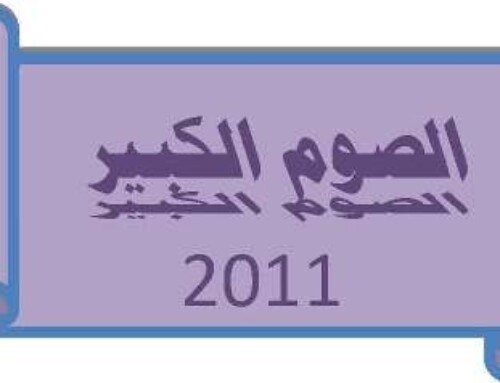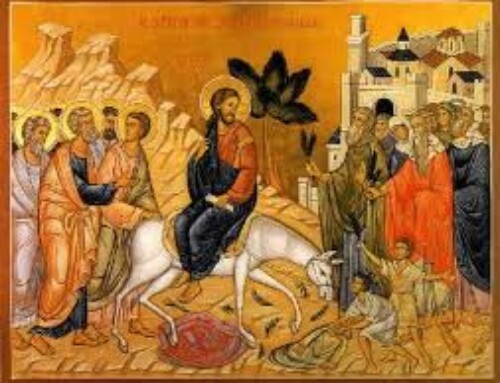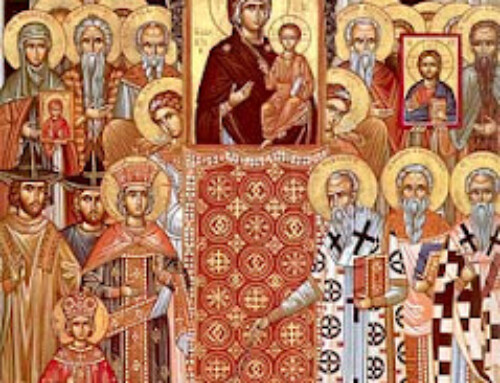الصفحة الرئيسية
المطران
إيماننا وعقيدتنا
جديد في الموقع
Word Magazine March 1971 Page 8
NEEDED: A NEW INSIGHT
by Father Gregory Ofiesh
San Francisco, California
Lent and Easter are now with us: the Feast of Feasts is about to be celebrated by millions of Orthodox Christians throughout the world. It is at this time in our Church life in which we manifest our repentance and preparation to live and die again with our Lord Jesus Christ.
Throughout this period, by means of self-examination and participation in the liturgical services, we are spiritually transformed into the Kingdom of Heaven.
Fasting and self-examination are not new concepts in our Church: they are disciplines that have come to us from the early life of the monastic communities. The only good for man was to withdraw from the world, from his fellowman, from all action, and even from the awareness of his senses, in order to seek an exclusive union of mind and will with God. This is well and good: the contemplation of God is a necessary goal for every man, but monastic life tended to sever the bond of love that unites us with our fellow man. Prayers were specifically a denial of any attachment to the world. Individual Christians became overly concerned exclusively with their own souls.
Because of the vast technological growth and achievement evidenced in our world today, we are no longer able to use the monastic approach to enlighten and inspire the minds and hearts of our people. No virtue can be separated from some form of action. Virtue is doing God’s work, living His life. It creates within an individual a sense of awareness of the needs of others as well as of his own needs. In this century and in this country we cannot withdraw from the world and become unconcerned with its problems.
Today we more than ever want to transform our world and bring it closer to God. We want to clean up our streams and waters, preserve our land, purify our air, and stop war. None of these can be done by man alone: he needs God. We need to receive both an awareness of and commitment to our own salvation and to the religious, humanitarian, and personal conflicts facing us in the world.
Here is the essence of our problem, yet it is far from being a new one. In spite of all the uprootings of the last decade and of all the continuing threats in our present age, we are just not able to realize the need for change. We are too attached to our ways and serve customs and traditions with avid devotion. It is not an easy struggle for the Church to change in order to meet the problems of the day because of the manner and thinking of her faithful.
This is especially true since today people in our Churches do not really understand Christ. They are proud of their faith: they are willing to submit themselves to strict self-examination, and they have built a spirit ready to defend the slightest deviation from the accepted ways. They are proud of what has been preserved, and the necessity of these values is equally defended. They cry, “If we lose what has kept us together for so long, what will happen to us?”
However, this need for change and updating is nothing new. Meeting new challenges with a growing Church is the history of our Holy Faith, for it has its origins in the struggles of the apostles among themselves, especially did it manifest itself in the second century in the challenge between simple faith and philosophy. At that time, the pagan critic of Christianity, Celsus
(writing about .A.D. 177-180) said, “While indeed there are some educated Christians, the majority commonly say, ‘Do not ask questions, only believe. Faith will save you. Wisdom is an evil thing and foolishness good.’ “ Philosophical inquiry was looked upon as an evil thing up to and during this period. In fact, it was considered doing the devil’s work, to pretend that anything more than simple faith was required. This attitude alienated the large number of educated people from Christianity.
Hoping to bring the Church into a more balanced perspective in relation to all groups, Clement of Alexandra entered the scene (200 A.D.). He exhorted his pagan contemporaries not to deny themselves the opportunity of the truth, the truth that is now dawning forth upon all mankind. “Let us flee the cake of custom: it chokes men, turns them away from truth, leads them out of the ways of life.” Thus, philosophy, and shortly thereafter monasticism, determined the destiny of the church’s teaching and worship.
Although we may find it difficult to accept change and although many of us may be dissatisfied with the status quo, the change is inevitable. The Church must be restored into the life of the people as a viable and meaningful expression of a person’s relationship with God. The Church is the Kingdom of Heaven and we must allow it to give us real experiences. Its prayers and fasting must be identified with the search and struggle taking place today. Its language and its worship must he expressive and meaningful to all. Let it be the aim of our clergy and our young people. to search for new methods of expressing the one truth, of the one God as found in the blessed Eucharist.



